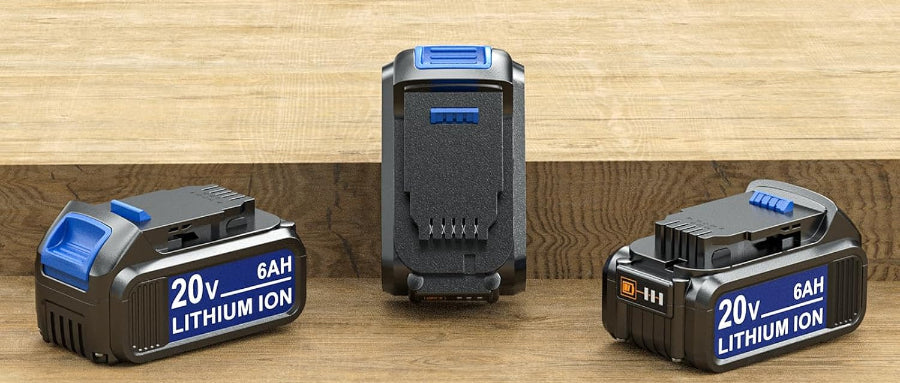
LITHIUM-ION VS. NIMH: WHICH IS THE BEST BATTERY TECHNOLOGY FOR CORDLESS POWER TOOLS?
When it comes to cordless power tools, the type of battery you use can make or break your productivity. Two major contenders dominate the scene: Lithium-Ion (Li-ion) and Nickel-Metal Hydride (NiMH). In the ongoing debate of nimh battery vs lithium ion, which one is better suited for today's high-demand power tools? Let’s dive into the key differences to help you decide.
1. Power-to-Weight Ratio
- Lithium-Ion: High energy density means more power in a smaller, lighter package. This makes Li-ion ideal for extended use without arm fatigue—especially for drills, impact drivers, and saws.
- NiMH: Heavier and bulkier for the same amount of power. Not ideal for compact or ergonomic tool designs.
2. Performance and Voltage Stability
- Lithium-Ion: Delivers consistent voltage throughout most of the discharge cycle. That means your tool performs at full strength until the battery is nearly empty.
- NiMH: Voltage gradually drops as the battery discharges, which can lead to noticeably weaker performance over time.
3. Charging Time
- Lithium-Ion: Charges faster—often in under an hour with modern fast chargers.
- NiMH: Slower to charge, and heat buildup can be an issue during charging.
4. Cycle Life & Memory Effect
- Lithium-Ion: No memory effect, and hundreds of recharge cycles - though performance degrades with age and heat.
- NiMH: Susceptible to memory effect if not fully discharged before recharging, which reduces capacity over time.
5. Temperature Sensitivity
- Lithium-Ion: Doesn’t perform well in extreme cold or heat. High temps can also accelerate battery aging.
- NiMH: Slightly more tolerant to low temperatures, which can be a plus for outdoor winter use.
6. Cost Considerations
- Lithium-Ion: Generally more expensive upfront, but prices have been decreasing with wider adoption.
- NiMH: Cheaper per battery, but the shorter lifespan may lead to higher long-term costs.
7. Environmental Impact and Sustainability
-
Lithium-Ion: They have a more complex recycling process but support longer tool lifespans, reducing overall waste
-
NiMH: They are easier to recycle but typically need more frequent replacement, creating more waste over time.
8. Compatibility with Modern Tools
- Lithium-Ion: Most modern cordless power tools are designed specifically for Li-ion batteries. Tool lines from brands like DeWalt, Makita are optimized for their proprietary lithium platforms.
- NiMH: Often reserved for older tools or specialty applications.
Nimh Battery vs Lithium Ion: Lithium-Ion Is the Clear Winner
While NiMH batteries still have some niche applications - especially where budget or cold-weather tolerance is a factor - Lithium-Ion is the superior choice for most cordless power tools today. It's lighter, more powerful, charges faster, and offers more consistent performance throughout its charge cycle.
Livowalny Power Tools Powered by High-Performance Lithium-Ion Batteries
Livowalny Power Tools integrates advanced Lithium-Ion batteries across its cordless tools to deliver lightweight, long-lasting power with fast charging and reliable performance. These batteries provide extended runtime, resist memory effect, and maintain charge well over time, ensuring users enjoy efficient, durable, and hassle-free operation for any task.






